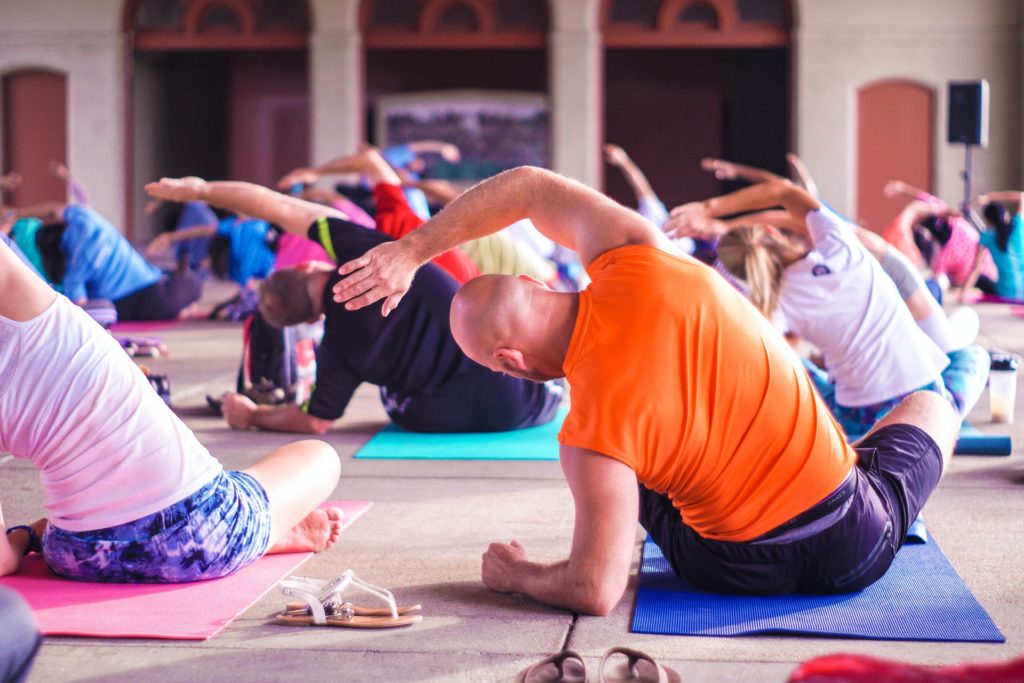Health anxiety isn’t unusual, especially now that we’re in the midst of a global pandemic, and it can be difficult to know how to ease your stress sometimes. People who have frequent health anxiety may find themselves disproportionately preoccupied with whether or not they’re ill or fear of becoming ill, and they often find it hard or impossible to manage that anxiety in a way that prevents it from affecting their day-to-day lives.
It follows naturally that the coronavirus outbreak has only exacerbated those fears, and created new ones in people who may not have previously had such intense concern surrounding their wellness. If you find yourself struggling with health anxiety, let’s go over five simple things you can do to help make you less anxious.
1. Talk to a doctor about your symptoms early.
Be prepared and research your condition and possible solutions, but don’t fall into the trap of thinking you’re a professional because you did some research online. Identify the specific symptoms you’re having that are making you uncomfortable, and reach out to a healthcare professional about them before you have time to let yourself get too anxious and overwhelmed.
If you find yourself struggling with your hearing, it makes sense to find a hearing aid clinic nearby and visit, but it doesn’t make sense to diagnose yourself on your own and let yourself panic about a worst-case scenario without talking to a professional. Believing the worst possible outcome you can conceive of would be like assuming you have permanent deafness over an ear infection. Hearing is a perfect example of an area where a myriad of treatments for conditions like tinnitus, hearing loss, and other audio processing issues are available, but patients often assume the worst. Take a deep breath, and ask someone with more knowledge than you first.
2. Spend less time online.
You might think you’re helping yourself by doing more research, but the reality is that when you have health anxiety, endlessly searching your symptoms online becomes a negative feedback loop. Your mind is conditioned to search for the worst-case scenario, which is very rarely the most likely or accurate reflection of what’s going on, and this just generates more anxiety for no reason.
3. Find relaxing recreational activities.
Finding ways to manage your fears in a more general sense is always a positive idea, and that progress will likely aid your health anxiety as well. There are a lot of activities you can enjoy in your downtime that is known to be relaxing or to provide mental health benefits.
If you’re an active person, finding a new type of physical activity can be a great way to distract yourself and find a new goal to focus on. Even more passive activities, like smoking a CBD joint at the end of a stressful day can make a big difference. If you’re unfamiliar with CBD, a good way to feel more educated about what you’re consuming is to research what you should know about CBD cigarettes in advance and how they differ significantly from other, less healthy smokable products. Even if it’s as simple as trying a new product or treatment, try to find relaxing ways to enjoy yourself.
4. Create a daily routine.
There are a lot of things you can manage about your health and wellness, and for someone with health anxiety, it’s even more important to be conscientious about the things you can control. Make sure you go to bed and wake up at reasonable hours and get a normal amount of sleep. Plan activities and contact with friends, so you don’t have hours of unscheduled time, which often leaves you open to being distracted by your anxieties and fears. It can take time and training to adjust to a new schedule, but it’s well worth it.
5. Consider seeing a therapist.
If your health anxiety is becoming debilitating or affecting your ability to function in your day-to-day life, try to find a therapist who can help. It might seem intimidating, but a psychologist or psychiatrist might be able to provide you with the tools you need to live a more fulfilling and less fearful life. Those tools can include everything from a change in your habits to introducing medication into your wellness regimen. Engaging with a mental health professional can benefit you in other areas of your life as well, so there aren’t any real downsides to seeking treatment via psychotherapy.
While it’s borderline impossible, especially now, to eliminate health anxiety entirely, that doesn’t mean there aren’t plenty of things you can do to try to make it manageable. If your worries and fears become intrusive or affect your ability to work or get through the day, it may be time to seek professional help and support. Taking care of our mental health is just as important as taking care of our physical health, and in fact, the two are often inextricably linked. It’s essential to balance not neglecting your body and paying attention to symptoms with not allowing paranoia and fear to control your life, and that balance is more than achievable if you’re willing to invest the time and effort into effectively addressing your health anxiety.

